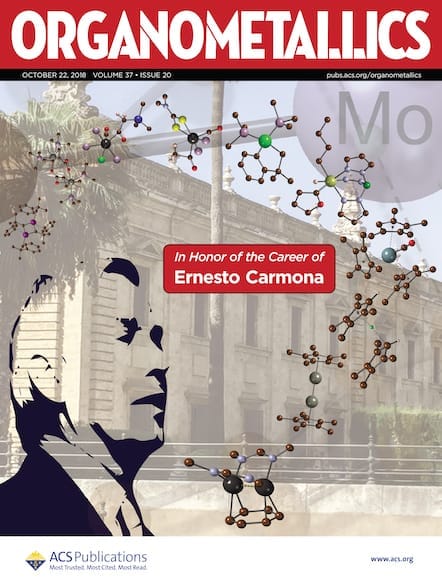Co-sponsored by the ACS Division of Organic Chemistry, the ACS Division of Inorganic Chemistry, and Organometallics, this annual award recognizes authors of exceptional articles published in Organometallics in the previous two calendar years that emphasize the importance of organometallic chemistry and have made a profound impact on the field. Meet This Year’s Recipient This year’s […]

Co-sponsored by the ACS Division of Organic Chemistry, the ACS Division of Inorganic Chemistry, and Organometallics, this annual award recognizes authors of exceptional articles published in Organometallics in the previous two calendar years that emphasize the importance of organometallic chemistry and have made a profound impact on the field.
Meet This Year’s Recipient
This year’s recipient is Professor Viktoria H. Gessner of Ruhr University Bochum in Germany, who is being recognized in part for her research on carbanionic species as ligands in main-group and transition-metal chemistry.
Learn more about Professor Gessner by reading the highlights from our interview.
What does this award mean to you?
I feel extremely honored to be selected as the recipient of this year’s award. I see this as an appreciation of my research efforts and as a validation of the great work my coworkers are doing every day. Research is a team effort, and I am proud of what my group has achieved in the past years.
I am also proud of this award because I am an organometallic chemist “from birth,” and by hear,t and thus Organometallics is the journal where I feel at home. Every paper that is published here contains aspects interesting for my own research. In fact, my first paper as an independent researcher was published in Organometallics. This was during the time when my research exclusively relied on my own hands, and when I was applying for my first funding for really starting my own research group. I received the note of acceptance a month prior to the grant interview, which was so important at that stage of my career. I remember this pretty well because I was on my honeymoon in Puerto Rico, and I had one more pina colada with my husband that evening.
What prompted your work in this area?
I always was fascinated by reactive compounds that require special techniques or careful molecular design for their handling and isolation. I have worked in organolithium chemistry already during my Ph.D. time and kept my love for carbanionic compounds all years long. When starting my independent career, I took up the challenge to isolate even more reactive compounds, such as s-block metal carbenoids, dianionic compounds, or metallated ylides. The idea was not only to simply isolate compounds that no one else before was able to isolate, but also to control their reactivity to that extent that we can uncover new applications. It always took some time to really get hands-on our systems, but we continuously succeeded in getting one step further and finally uncovered unprecedented reactivities which led us to new directions and exciting discoveries.”
What will you be working on next?
I am a big supporter of fundamental research, and this will always be that way. However, my group experienced in the last three years the great luck to uncover catalysts that are also of interest to industry. This gave me additional motivation for my research. In the future, my group will, of course, continue our research on carbanionic ligands and their use in stabilizing reactive compounds and unique bonding situations. But we will focus more closely on applying them to establish new synthetic methods and catalytic applications. I believe that main group chemistry holds many possibilities, and I am eager to contribute to their revelation also in the future.
Access Professor Gessner’s articles published in Organometallics
Stay Tuned!
Stay tuned for more details on the symposium and the 2021 Award nominations process by subscribing to journal updates and alerts.
